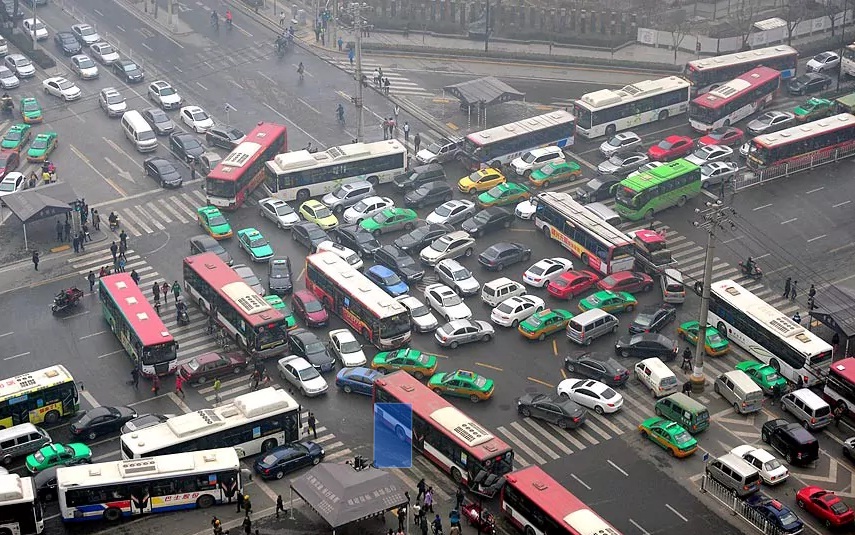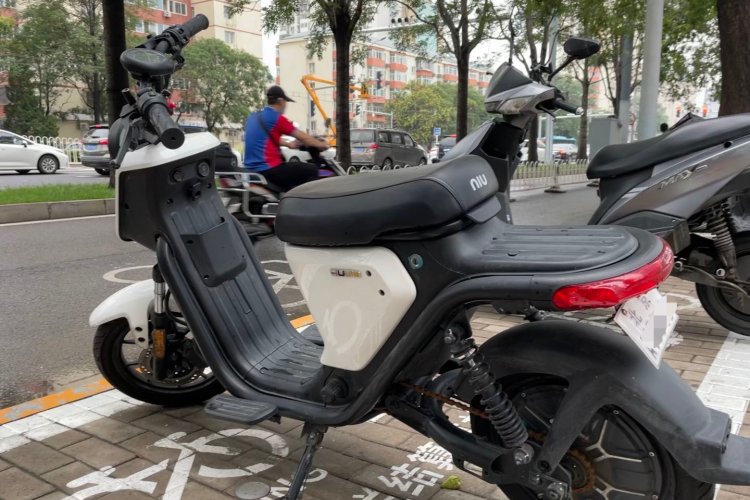Bad Driving in Beijing: Poor Planning, or Lack of Enforcement?
The city’s oldest byways are narrow and in need of protection. A good first step would be to ban cars in certain hutongs.
Bad policies often inspire the best constructive griping. Such was the case with this week’s decision by the Municipal Government to ban some forms of motorized scooters from the city’s streets as a way to ease Beijing’s perpetual traffic problems. Tom Arnstein, with a little help from the Beijinger staff and the comment section community, offered some catharsis for those struggling to commute in a city where a car attempting to ascend a pedestrian overpass is seen as normal motor vehicle operation.
After nearly 14 years in Beijing dodging certain deaths at intersections only to be run down by an e-bike (E-Bikes: The Silent Killer) on the sidewalk, I can relate.
Parking on the sidewalk. Driving in the bike lane. A reckless disregard for pedestrians. (It is an axiom of the Beijing roadway that anyone not wishing to be hit by a car should stop being poor and promptly buy their own car. Problem solved.) Anyone who has been in Beijing long enough will have their personal traffic tale of woe.
I mean, who among us has not at some point engaged in an act of micro-aggression (some righteous, others less so) in the name of traffic safety?
One international business owner is famous for posting on WeChat pictures of illegally parked cars. In my own moment of weakness, I once almost started World War III in the local neighborhood by smacking the back of a BMW which had just missed flattening my dog – it actually nicked her leash – as the car zoomed down a bike lane. Fortunately, the driver was content to only yell obscenities, and I was content to stand there, be 19 stone, and let him vent.
Cars are something of a wedge issue between the international community and local citizens of Beijing. Many foreign residents of Beijing eschew driving themselves for bicycles, scooters, e-bikes, public transport, or walking. When cars are needed, they are summoned by apps. A sizable and growing section of the local Beijing population prefers to drive themselves.
As a result, Beijing’s roads, sidewalks, and bike lanes have become cultural fault lines. When complaints are made, whether posted on the Beijinger Forum or grumbled over beers at XL, about “Beijing drivers,” there is an unspoken assumption that said drivers did not grow up in Connecticut, Canterbury, or Canberra.
So I am aware that my own gripes, as a foreign resident and a dedicated pedestrian, comes with a set of baggage. But culture clash or no, there are some very real safety and urban environment issues related to the state of traffic in Beijing.
My own personal whinge is the attempt by drivers to barrel down narrow hutong with the expectation that all before them shall immediately give way to their SUV awesomeness. It would make sense – or so it seems to me – that restricting automotive traffic in these historic narrow lanes would be a good first step toward reinvigorating the city center as a cultural space.
Many cities around the world have policies limiting cars in historic areas to residents and those with special permits. Fewer cars would also mean wider lanes for other vehicles as the hutongs would no longer be choked with cars parked quasi-legally on both sides.
Some hutongs have experimented already with this. Nanluogu Xiang technically bans motorized vehicles during certain hours, but any such policy comes down to enforcement.
There is a tendency in attacking city problems to go after the lowest hanging fruit. Who can forget the great barbecue round-up of 2013 as part of a “crackdown” on polluters? Enforcing an embargo on electric scooters is no doubt easier than preventing a black Audi from driving down a hypothetical pedestrian-only hutong.
But the city’s traffic problems are real and significant, and it will take policies of greater significance than a scooting ban to fix them.
Jeremiah Jenne is a writer, educator, and historian based in Beijing. He maintains the site Jottings from the Granite Studio and is co-host of the Chinese history and culture podcast Barbarians at the Gate. You can follow him on Twitter @granitestudio.
Photo: telegraph.co.uk







